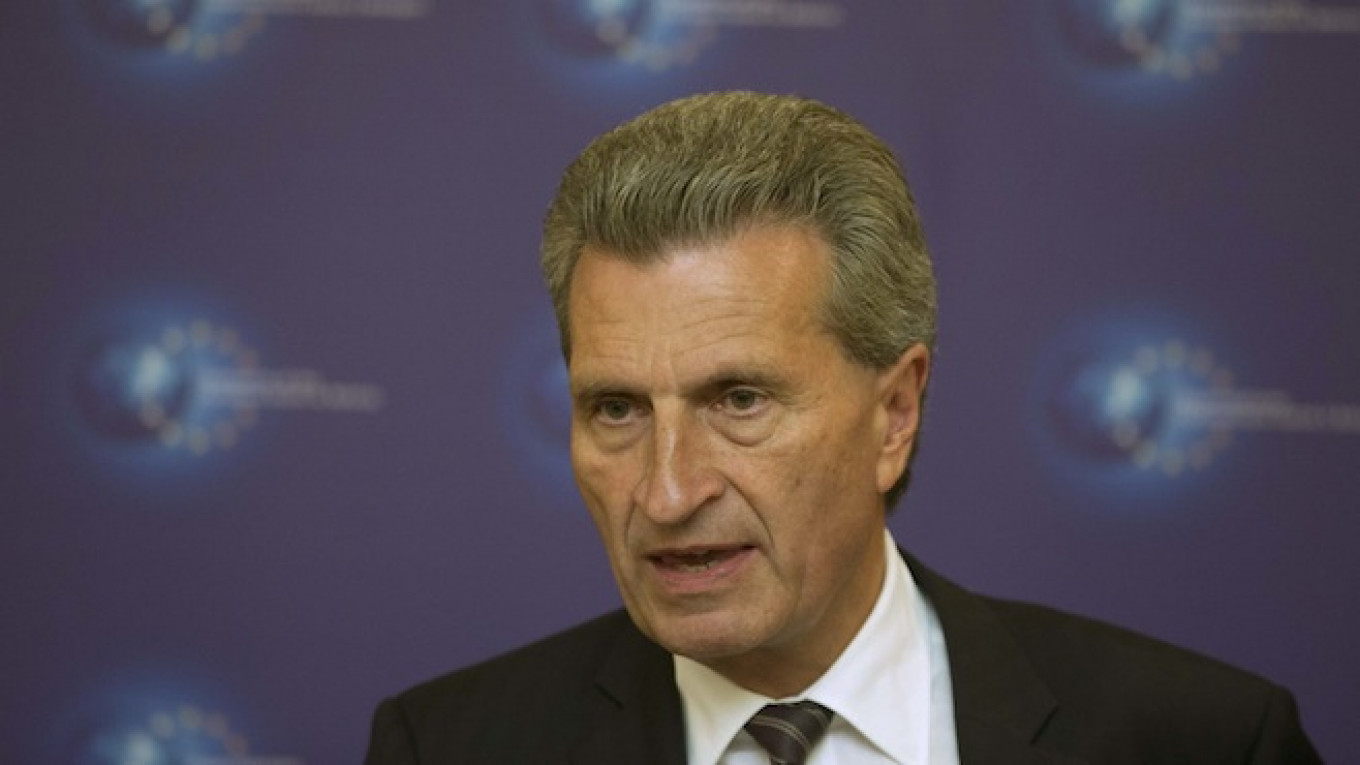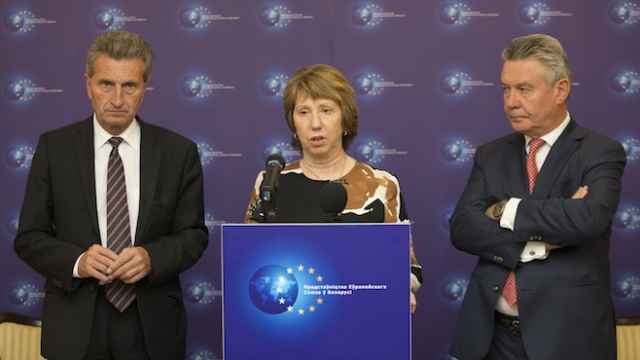European Energy Commissioner Günther Oettinger has warned he is not ruling out "worst case scenarios" on Europe's energy security due to Russian President Vladimir Putin's "lies" amid Moscow's actions in Ukraine.
"That Putin would use false information, lies and weapons was beyond my imagination," Oettinger said Tuesday at an event of German energy utility RWE in Brussels.
"That's why I am not ruling out worst case scenarios any more," he added, referring to Europe's energy security.
The war in Ukraine, which has led to the worst stand-off between Russia and the West since the Cold War, has heightened fears in Europe of gas shortages in the winter.
Russia is Europe's biggest supplier of oil, coal and natural gas, and its pipelines through Ukraine are currently subject to political maneuvering, not for the first time, as the West and Moscow clash over the latter's military action in Ukraine.
Oettinger is mediating talks between Russia and Ukraine to resolve a gas pricing row and avert a damaging supply cut in the winter.
On Tuesday he said that he feared the advance of pro-Russian separatists toward the port city of Mariupol in the south of Ukraine could create a corridor stretching from there to Crimea, which Russia annexed in March, and Russian-speaking breakaway state Transnistria.
"Then Ukraine would be cut off from the Black Sea."
EU countries and the U.S. have responded to Russia's actions in Crimea and Ukraine by imposing economic sanctions on Russia and are set to tighten them further this week.
A Message from The Moscow Times:
Dear readers,
We are facing unprecedented challenges. Russia's Prosecutor General's Office has designated The Moscow Times as an "undesirable" organization, criminalizing our work and putting our staff at risk of prosecution. This follows our earlier unjust labeling as a "foreign agent."
These actions are direct attempts to silence independent journalism in Russia. The authorities claim our work "discredits the decisions of the Russian leadership." We see things differently: we strive to provide accurate, unbiased reporting on Russia.
We, the journalists of The Moscow Times, refuse to be silenced. But to continue our work, we need your help.
Your support, no matter how small, makes a world of difference. If you can, please support us monthly starting from just $2. It's quick to set up, and every contribution makes a significant impact.
By supporting The Moscow Times, you're defending open, independent journalism in the face of repression. Thank you for standing with us.
Remind me later.






